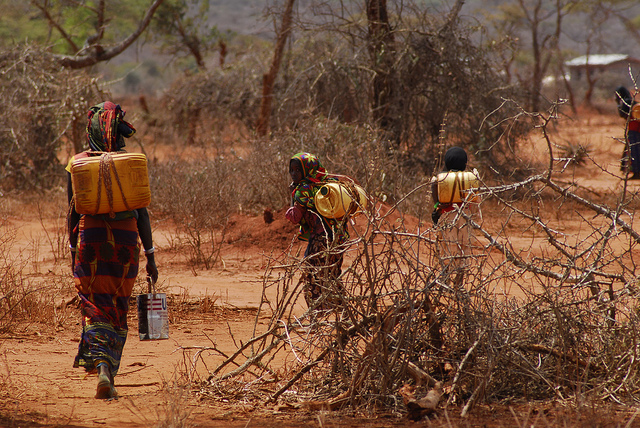IFAD, the International Fund for Agricultural Development, is targeting half a billion smallholders in the Africa, Latin-America, Central Europe and Asia with its programmes and funding.
Recently appointed president of IFAD, Dr. Gilbert Houngbo visited Sweden for meetings with the Swedish Ministry of Foreign Affairs, Sida and SIANI at a time when thousands of people are facing famine in Nigeria, Somalia, South Sudan and Yemen. The famine is due to internal conflicts but also due to water shortages, heat stress and flooding. However, even though, a rapid emergency response is of immediate concern he stressed the importance of climate-smart agriculture for positive long-term development where these kinds of crises can be avoided. “Many smallholders can not afford expensive insurances against catastrophic weather impacts, but this is something we try and work around”, Gilbert explained.
Climate change impacts are increasing the costs of achieving the SDGs by around 10-15 %. “Africa alone is facing climate change adaption costs of an estimated 7-15 billion US dollar per year between now and 2020” said the President. Current flow of adaptation finance is between 1-2 billion a year. To optimise IFADs contribution to achieve Agenda 2030 more and larger projects need to work to foster rural development. “That is why we are seeking an increase in resources that would allow us to raise our overall programme of loans and grants by around 25%” he continued.
Climate-smart agriculture with its focus on sustainable resource management and rural development has many tools in its toolbox. How exactly these tools are applied and combined was the center of discussions at the seminar. If smallholder farmers have access to small-scale irrigation systems, or drought resistant seeds, it is more likely they will manage to grow their crops efficiently and achieve a surplus to sell at the market. IFAD also works to give farmers easyly accessable and digestible market information so they can understand their position in value chains. This allows farmers to make higher profits from their farming and pay the bills for their children’s education.
IFADs visit to Sweden proved significant in strengthening ties. “IFAD and Sweden share a long-standing commitment to invest in environmental sustainability, providing small farmers with the tools and skills they need to deal more effectively with a changing climate,” Mr Houngbo concluded.
Watch the talk by the President of IFAD below (7.50 min into the film). Check out all videos and resources from the same seminar “How can climate-smart agriculture and rural development foster resilience?” here.
